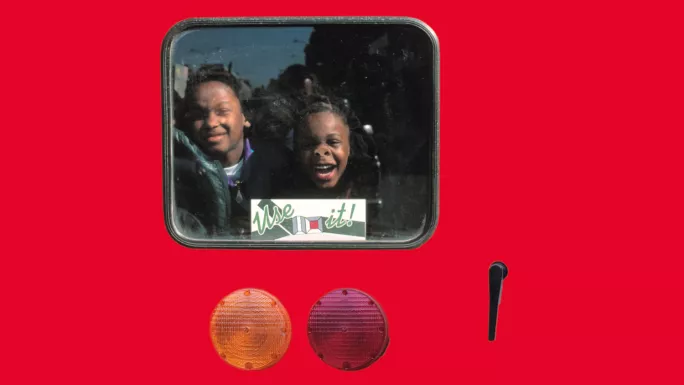#ToYouFromTes: The day I hitched a ride on the highway to hell

It was when I was queuing up, alongside the students, waiting for the bus that the doubts started to creep in. Why had I agreed to brave the school bus ride? Alone?
“Are you catching this to see how badly we behave, sir?” one child asked me. I turned to face him. The truth was: sort of. But there were other reasons, too.
For hundreds of thousands of children, the school bus is their first and last experience of school every day. If a child has a safe and happy journey to school then they are well prepared for a day’s learning. If the journey is unpleasant and stressful then it could lead to anxiety, truancy and poor academic performance.
Behaviour on buses is a particularly important issue at my school. Our setting is very rural and nearly three-quarters of our pupils catch a bus. So yes, I wanted to see how they behaved, but I also wanted to know what really happens on the bus to school. And can we make this crucial part of the day a positive experience for all children?
Catapults and condoms
There is a common perception that the school bus is one of Dante’s levels of hell. It is a view reinforced by plenty of newspaper reports detailing how innocent members of the public have accidentally stumbled on to school buses and encountered marauding youths. Or it might be down to the tales of bus drivers dumping their young passengers back at school and refusing to take the horrible lot anywhere.
A while ago, my school received reports of misbehaviour on our buses. Catapults were mentioned. Since then, we’ve worked closely with the bus company. A representative from the firm gave a series of assemblies about the dangers of poor behaviour on the buses and the effect that this can have on the driver. He shared the story of a 12-year-old Welsh boy who died in a bus crash caused by a fight between pupils who nudged the steering wheel.

The reports of bad behaviour kept coming. But the tales of what had happened “on the buses” seemed to be almost clichés. Surely the school bus wasn’t that bad … was it?
To find out for myself, I took a seat on the bus. I awaited the hail of food and inflated condoms, and the catapult fire. I wasn’t wearing my newest suit that day, just in case.
But as soon as they sat down, almost every child reached into their bag or pocket and pulled out … their phone.
To my surprise, the 30-minute journey was quite uneventful. Dare I say, it was rather boring.
The 15-year-old pupils at the back of the bus were a little raucous on a couple of occasions, but nothing that was sustained or shocking. No insults were shouted, nothing was thrown, nothing remarkable happened.
I was, of course, disappointed. I thought this journey would provide me with enough material for several Tes articles. How dare the pupils let me down with their good behaviour. Perhaps the children on the bus had behaved so impeccably because I was there, so in search of more juicy and shocking material, I decided to ask my students about their experiences on school buses, hoping to unearth some true gems of bad behaviour. Their responses only mirrored what I had experienced.
The majority of pupils whom I spoke to said that they felt safe and happy on the school bus, and they thought the behaviour of other pupils was at least acceptable, with a few describing it as “excellent”. They described the bus drivers as “welcoming” and “friendly”. One pupil went so far as to describe the driver as “fun and chatty”. “Our bus driver bought us a massive chocolate bar each for Christmas and baked cupcakes for us when it was my sister’s birthday,” said one student.
I was delighted by my findings. It would appear that our pupils were having a positive experience on their journey to school, which takes over half an hour for more than a third of them. They were beginning and ending their days in a calm, safe and positive way.
Driven to distraction
Yet, amid all of the positive reports of the school-bus experience, occasional stories from pupils and staff told of poor behaviour on buses. There are still children every day who feel intimidated and scared on their journey to school in the morning. So I investigated further and found that all of these negative reports came from the bus that carries the largest number of pupils to school. It is also the only double-decker bus. Why would these factors make pupils, who behave well in school, behave worse on their journey home than their peers on smaller buses?
The work of the American sociologist Mark Granovetter can help to explain the significance of the bigger bus and larger group of children. He talks about threshold models of collective behaviour; rather than arguing that our beliefs change when we become part of a mob, Granovetter argues that we each have a threshold at which we begin to copy other people’s behaviour.
Some of us might have a low threshold: we might see three people throwing stones at a window during a riot and we feel compelled to join in. Other people have a high threshold: it would take all of their friends, family and hundreds of others to throw stones at a window before they felt compelled to join in. Their beliefs about right and wrong do not change; they are simply changing their behaviour for social acceptance. Because there are more pupils on the double-decker bus than on our other bus routes, there is a higher chance of the collective behaviour thresholds of more pupils being exceeded.
It was an intriguing discovery. Yes, most of our students experienced the school bus in a far more positive way than the urban legends of education would have you believe. It was useful to strike that off the worry list and add a note to look at why reports of disturbances were so prevalent (I suspect exaggeration plays a part). But here also was a reason why, for some of our students, that legend was actually true.
The work of Granovetter points towards a simple solution: use more smaller buses rather than fewer large ones. This will mean that fewer pupils will exceed their collective behaviour threshold and behave in a way they know is wrong. Although this is a more expensive solution, with higher transport costs, savings will be made by not wasting valuable teacher time dealing with issues that happen on the school bus and the absenteeism that can result.
If your behaviour problems are on a public bus and the company will not reduce the size of the bus, why not get your school to contract another company to run the route at the same time?
Of course, this is only a single-school study, but I imagine your own school will have similar exaggerations of outrageous behaviour and similar pockets of experience you need to genuinely worry about. Granovetter’s work will be a solution for some and only part of the solution for others. You won’t know for sure, though, until you see it for yourself. Time for mandatory SLT bus commutes on a termly basis?
John Stanier is assistant headteacher at Great Torrington School in Devon
This piece was released behind the paywall for the Tes advent calendar. Track #ToYouFromTes on Twitter, Facebook and Instagram to see which articles are being made free to read.
Want to keep up with the latest education news and opinion? Follow Tes on Twitter and Instagram, and like Tes on Facebook.
You need a Tes subscription to read this article
Subscribe now to read this article and get other subscriber-only content:
- Unlimited access to all Tes magazine content
- Exclusive subscriber-only stories
- Award-winning email newsletters
Already a subscriber? Log in
You need a subscription to read this article
Subscribe now to read this article and get other subscriber-only content, including:
- Unlimited access to all Tes magazine content
- Exclusive subscriber-only stories
- Award-winning email newsletters